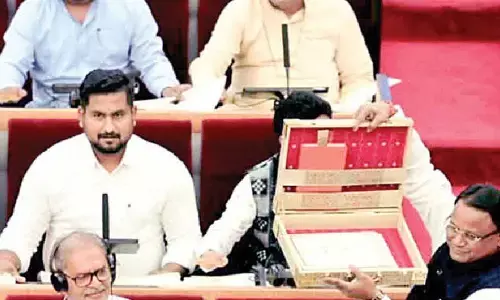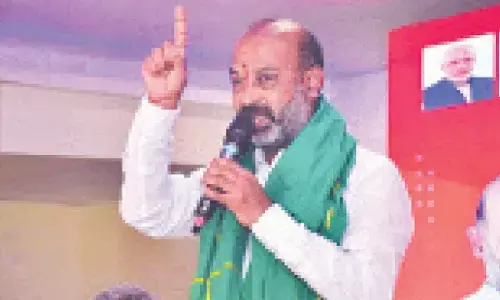Can Trump cut the Gordian knot?

Almost 16 years to the day since the US embarked upon its war on terrorism against the Afghan Taliban on October 7, 2001, as reprisal for the enormity of the 9/11 terrorist attacks, it appears that a White House administration is again issuing dire warnings to Rawalpindi (GHQ of the Pakistan Army) while still dangling the familiar \"carrot\".
Almost 16 years to the day since the US embarked upon its war on terrorism against the Afghan Taliban on October 7, 2001, as reprisal for the enormity of the 9/11 terrorist attacks, it appears that a White House administration is again issuing dire warnings to Rawalpindi (GHQ of the Pakistan Army) while still dangling the familiar "carrot".
At a congressional hearing of the US Senate Foreign Relations Committee in Washington DC on Tuesday (October 4), General Joseph Dunford, Chairman, US Joints Chiefs of Staff, observed candidly: "I think it's clear to me that the ISI has connections with terrorist groups." This is not the first time that an incumbent in his chair has come to such a determination.
US Defence Secretary Jim Mattis had a similar assessment, adding that while Pakistan may have come down on terrorism, "the ISI appears to run its own foreign policy". The war in Afghanistan, where Pakistan was accorded the status of a major non-NATO ally, has been expensive for the US both in terms of blood and treasure.
A study by the Brown University estimates that, as of 2016, the US may have spent up to $ two trillion towards the Afghan campaign, which still remains inconclusive and messy. As a benchmark, it may be relevant to note that India's GDP in 2016 was estimated to be $ 2.26 trillion.
Will the latest warning by the Trump team have the desired effect on the Pakistani Inter-Services Intelligence (ISI) and the "deep-state" in that country? It is difficult to be optimistic. Three high-level political visits in end September frame the intractable nature of the Afghan war. They were dramatically illustrated by events in Kabul. Mattis arrived in Kabul from Delhi (September 26) and a few hours later the airport was subjected to rocket fire by the local Taliban.
This attack on the Kabul airport led to a delay in the visit of Abdullah Abdullah, CEO of Afghanistan, to Delhi. This brings us to the third visit -- that of Pakistani Prime Minister Shahid Khaqan Abbasi in end September to the US, where he asserted that charges of Pakistan sheltering terrorists were "untrue", and that the only cross-border movement of terrorists was "from Afghanistan to Pakistan"!
This inflexible veto that Pakistan has accorded unto itself in relation to the internal affairs of Afghanistan and the brazen manner in which it continues to deny the role being played by Rawalpindi in supporting terror groups lies at the core of the political and military challenge for the US, India and Afghanistan. This was reiterated during the Mattis-Nirmala Sitaraman meeting in Delhi.
A highly respected US marine corps general, Mattis has first-hand experience of the war in Afghanistan and is deeply aware of Pakistani duplicity, wherein the US taxpayers money is being spent to attack and kill US military personnel.
The metaphor hunting with the (US) hounds and running with the (Taliban) hare could not be more apt. But the more relevant question that many US citizens ask in anger is how the world's lone superpower could allow such perfidy to continue for years. This is the question that President Trump is seeking to answer and introduce a much needed corrective to the US South Asia policy.
India, which is also a stakeholder in the war against terror, is a major development partner in the reconstruction of Afghanistan and has provided aid in excess of $2 billion. During the Mattis visit Defence Minister Sitharaman confirmed that while Delhi would not send any troops to Afghanistan, it would enhance its training role for security and police personnel.
The critical military equipment that the Afghan military needs is a complex matter and India is constrained by its own military inventory gaps and the dependence on Russian-origin equipment that cannot be supplied without involving Moscow in the deliberations.
The sub-text of the three visits illuminates both the nature of the Afghan conundrum and the difficulties inherent in crafting policy options that will be more effective than what has been the cost-benefit analysis of the last 16 years. To add to the complexity, Beijing has also become an interlocutor.
Even as the Mattis-Abdullah visits were taking place, the second meeting of the China-Afghanistan-Pakistan (CAP) Practical Cooperation Dialogue was held in Kabul (September 26, 27).
Weaning Rawalpindi away from supporting terror groups will not be a swift binary choice and the White House has considerable experience in the matter. Whether President Trump will be able to cut the Gordian knot remains moot. (The writer is Director, Society for Policy Studies, New Delhi)
By C Uday Bhaskar









